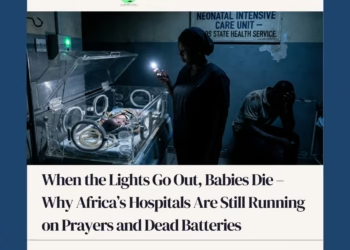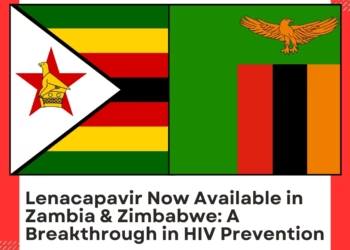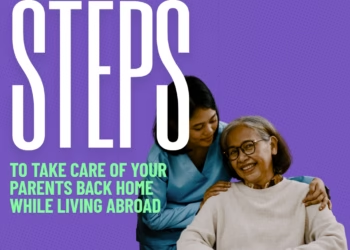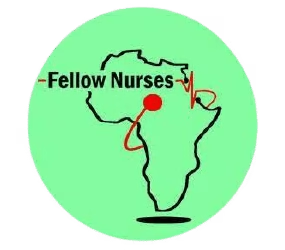Fellow Nurses Africa, Lagos Nigeria. 09, August, 2025.
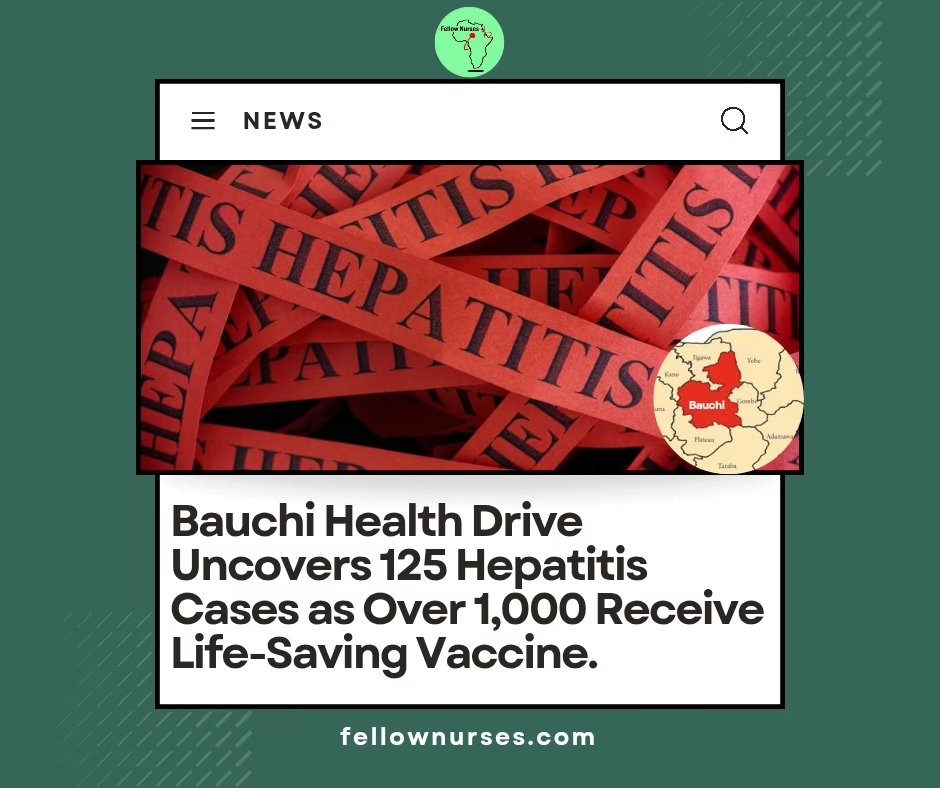
A major public health initiative in Bauchi State has identified 125 new hepatitis cases while delivering critical vaccinations to over 1,000 residents, underscoring both the silent spread of liver disease in rural Nigeria and the urgent need for expanded screening programs.
The Shafa Foundation’s three-day outreach program, conducted across Kirfi, Shafa, and Tudu communities, screened 1,283 residents and administered 1,096 hepatitis B vaccinations, representing one of the largest single hepatitis interventions in the state this year.
The screening results paint a concerning picture of hepatitis prevalence in rural Bauchi, with nearly 10% of those tested showing positive results for either hepatitis B or C—both potentially fatal forms of the virus that attack the liver.
Critical Follow-Up Care Begins
All 125 individuals who tested positive will receive immediate referral to specialist hepatology clinics for comprehensive evaluation, according to Dr. Mohammed Aminu, Executive Director of the Shafa Foundation.
“Every positive case represents a life we can still save through early intervention,” Dr. Aminu told reporters. “These patients will undergo liver function assessments, viral load testing, and enter long-term monitoring programs to prevent progression to cirrhosis or liver cancer.”
The World Health Organization warns that untreated hepatitis B and C infections kill more people annually than HIV/AIDS, with liver cirrhosis and cancer being the primary causes of death among untreated patients.
Vaccination Program Shows Promise
Medical experts at the screening sites emphasized the remarkable effectiveness of the hepatitis B vaccine, which provides over 95% protection when patients complete the full three-dose regimen. The vaccine creates long-lasting immunity that significantly reduces community transmission rates.
“We’re not just protecting individuals, we’re building community-wide immunity that will protect future generations,” explained Dr. Sarah Yakubu, the Foundation’s lead immunization specialist.
The vaccination drive particularly targeted high-risk groups including healthcare workers, pregnant women, and individuals with multiple sexual partners or a history of blood transfusions.
Addressing Nigeria’s Hidden Epidemic
Bauchi State mirrors the broader Nigerian challenge with viral hepatitis, where limited public awareness combines with inadequate testing infrastructure to allow the disease to spread largely undetected.
Recent data from the Federal Ministry of Health suggests that up to 20 million Nigerians may be living with chronic hepatitis B, while millions more remain infected with hepatitis C. Most remain unaware of their status until serious liver damage has already occurred.
The Kirfi Local Government Area, where much of the screening occurred, had previously recorded minimal hepatitis testing, making this intervention particularly significant for establishing baseline disease prevalence.
Community Response Exceeds Expectations
Local community leaders reported overwhelming response to the free screening and vaccination program, with some residents traveling over 20 kilometers to participate.
“Many of our people have never had the opportunity for this kind of medical screening,” said Malam Usman Kirfi, a traditional ruler who helped organize the outreach. “The Foundation has opened our eyes to a disease we didn’t know was among us.”
Health educators conducted parallel awareness sessions, teaching residents about hepatitis transmission routes, prevention methods, and the importance of completing vaccination schedules.
Expansion Plans Underway
The Shafa Foundation announced plans to extend similar programs to additional Local Government Areas across Bauchi State, working in partnership with state health authorities to ensure sustainable follow-up care.
“This is just the beginning,” Dr. Aminu emphasized. “Our goal is to screen at least 50,000 residents across Bauchi State over the next 18 months while building permanent testing and vaccination capacity in rural health centers.”
The Foundation is seeking additional funding partners to support expanded screening efforts, with particular focus on remote communities that have never received hepatitis testing services.
The Road Ahead
Public health experts view the Bauchi intervention as a model for addressing Nigeria’s hepatitis crisis, combining immediate screening and vaccination with long-term capacity building and community education.
However, significant challenges remain, including the need for sustained funding, cold chain maintenance for vaccines in remote areas, and ensuring that positive cases receive ongoing specialized care.
The success of this initial outreach has already prompted inquiries from health authorities in neighboring states interested in replicating the comprehensive approach.
For the 125 newly diagnosed patients in Bauchi, the screening represents a potential turning point—transforming what might have been a silent killer into a manageable health condition with proper treatment and monitoring.
Key Statistics:
- Total screened: 1,283 residents
- Positive cases identified: 125 individuals (9.7% positivity rate)
- Vaccinations administered: 1,096 doses
- Communities reached: Kirfi, Shafa, and Tudu
- Vaccine effectiveness: Over 95% with complete dosing schedule
Fellow Nurses Africa is the independent voice of African nurses. We educate, inform and support the nursing profession.

